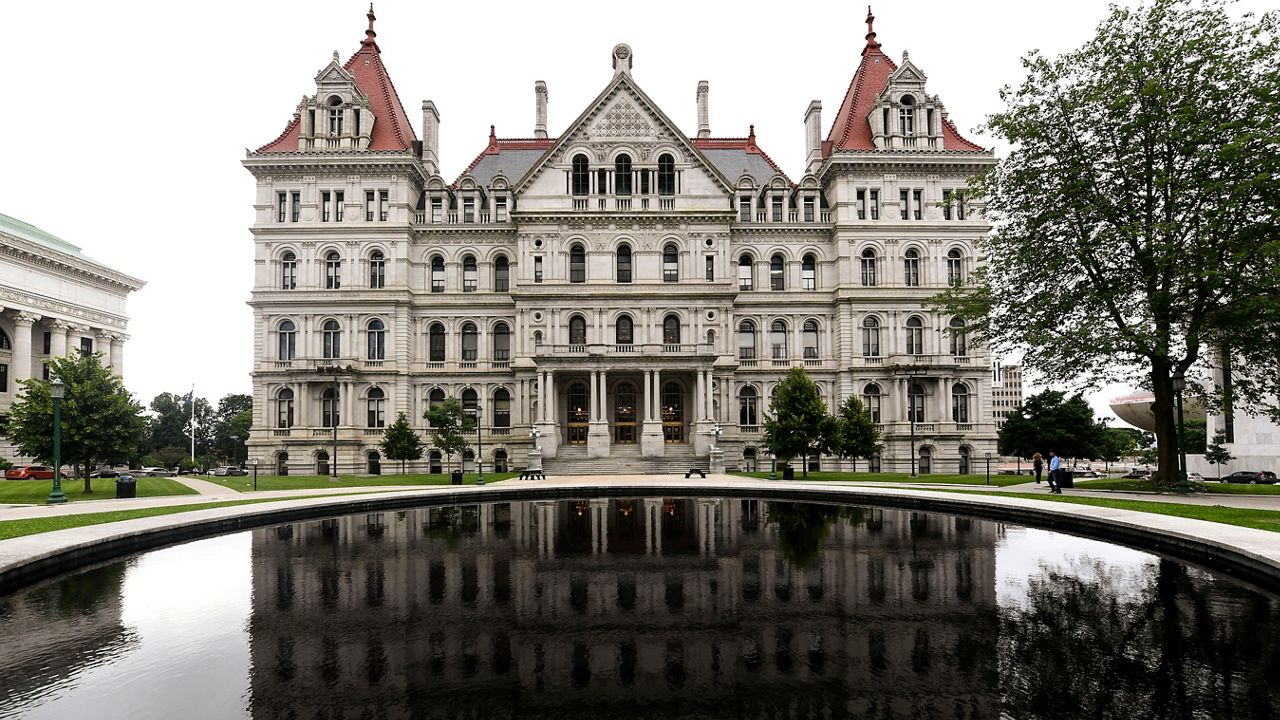Gov. Andrew Cuomo delivers his State of the State address on Wednesday, detailing his agenda for the new year.
Already more than two dozen proposals have been released by his office, touching on issues that range from rebuilding a ski center in the Adirondacks to gun control.
But ultimately this session could hinge on three big issues dominating the headlines right now.
1. The $6 billion budget gap.
What’s so worrisome about the budget hole New York is contending with is its timing. The economy is humming along. The concern among budget watchdogs is whatever the state does this year to close the gap will make it harder for officials to address the next hole when the economy becomes sour.
There are three basic ways to close the gap: Increase taxes, cut spending or find new revenues.
Some Democratic lawmakers are already taking about tax hikes for the very rich in the state, a move that Cuomo has resisted. New York’s tax revenue relies on a small percentage of super wealthy people and the governor has pointed to a cap on state and local tax deductions set at $10,000 as a disincentive for further levying tax hikes for the rich.
Cutting spending will be even less politically popular. There’s some concern among lawmakers the Cuomo administration is moving forward with a 1 percent cut in Medicaid spending, a move meant to address a $4 billion gap in the program’s budget. The cut, essentially, slows spending. Goring the Medicaid ox, too, is the political equivalent of walking into a hornet’s nest. Hospitals and health care labor unions are both politically potent operations that have been opposed to any effort to slow down spending.
One option heard again and again is raise revenue potentially through allowing New York City casino licenses. The revenue derived from gambling is seen as a diminishing return for the northeast market, but the revenue that would come to the state would be from the billions of dollars casino companies would have to put up to gain a license to operate in New York.
There are, of course, pitfalls with casino expansion. Some in the Legislature are uncomfortable with any gambling expansion in the state. The license revenue, too, would amount to a one-shot sugar rush to close the budget gap this year, and not contend with structural problems.
2. Marijuana legalization.
A year ago, the legalization of marijuana failed in the state Legislature amid disagreements between Democrats over how to proceed. The legalization of retail cannabis remains a more complex issue than ever before.
Cuomo has said he wants to tackle the issue along with the health affects associated with vaping and intertwine the issue with a renewed legalization push.
Meanwhile, the previous year’s issues raised by lawmakers — traffic safety and law enforcement concerns, where to spend the revenue derived from legalization, who should receive a license in order to balance out the costs of the war on drugs — have not dissipated at the Capitol.
It’s hard to find a Democratic lawmaker of some influence in Albany who is philosophically opposed to some form of marijuana legalization. Most agree the laws nationally and in New York have slide towards a greater expansion of cannabis use. It was only six years ago the state moved to legalize medically based cannabis products.
But the same issues — and then some — remain for marijuana legalization in 2020.
3. Criminal justice law changes.
Last year, Democrats in the Legislature used their newly empowered majority in the state Senate to pass long-sought criminal justice law changes that sped up the evidentiary discovery process and ended cash bail for misdemeanors and non-violent felonies.
The roots of these changes stem back to concerns people, primarily in New York City’s Rikers Island jail, were languishing in lockup without trial. There have been suicides and other mental health problems associated with people spending months at a time in jail awaiting trial.
But the cash bail changes applied statewide have led to a backlash from Republicans, who have highlighted the release of people without bail who have been accused of a variety of crimes. Supporters of bail law changes point out people facing criminal charges would be released anyway if they could afford to post bail, and the previous laws penalize poor people.
Still, Democrats from moderate suburban and upstate districts this year may undertake a renewed push to alter last year’s changes, such as adding judicial discretion to assess whether a person is too dangerous to be released. Similar provisions have been put in place in other states that have constricted cash bail, like New Jersey.
It’s an election year.
Keep in mind this is an election year for all 213 seats in the state Legislature. Several lawmakers — Republicans and Democrats alike — are seeking promotions to run for Congress. President Donald Trump’s actions will loom large among Democratic lawmakers. Gov. Andrew Cuomo is in the middle of his term and doesn’t face voters again until 2022. He continues to have leverage over the state budget — intrinsic power that can largely allow him to get what he wants out of the process.


